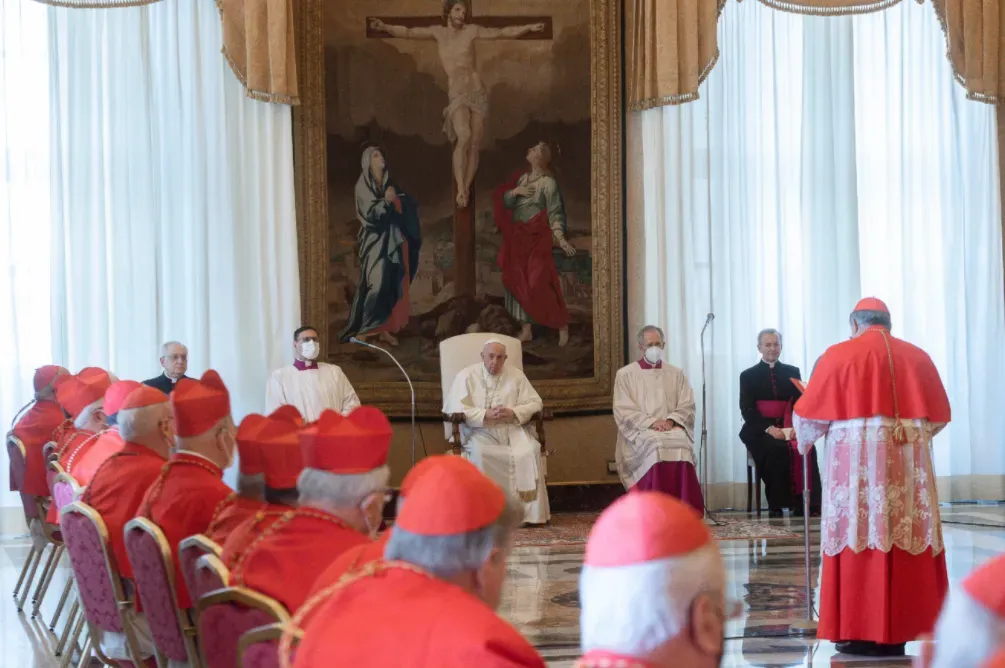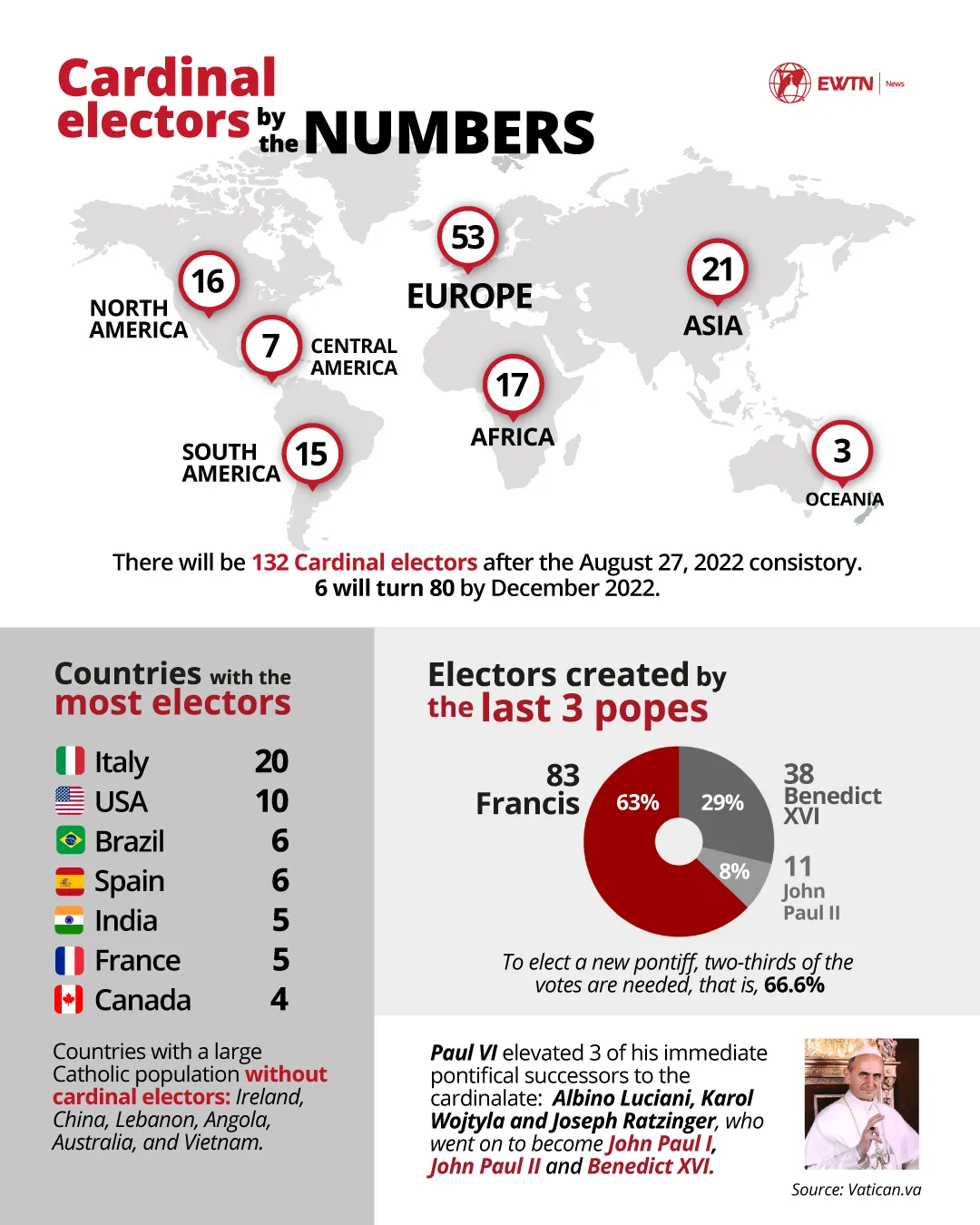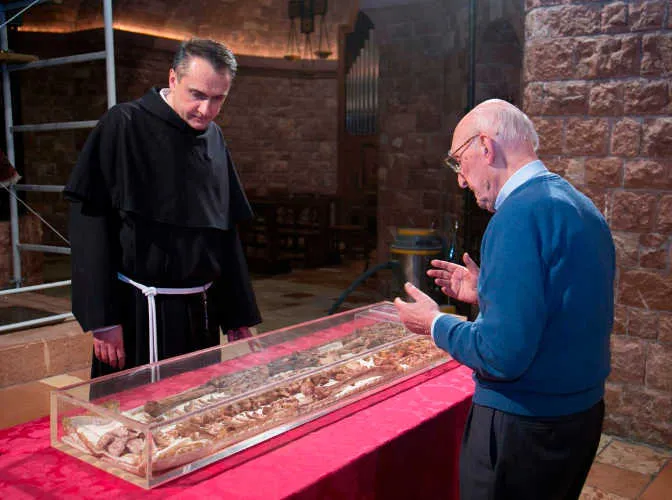St. Louis, 25 August, 2022 / 8:25 pm (ACI Africa).
The College of Cardinals is the group of the pope’s closest assistants and advisers, made up of all of the Catholic Church’s cardinals from around the world. On Aug. 27, Pope Francis will create 20 new cardinals, bringing the total number in the college to 229.
But not all of the 229 cardinals will be eligible to elect a new pope.
Pope St. Paul VI established in 1970 that cardinals aged 80 and over cannot participate in the process of electing a pope — thus, cardinals who are younger than 80 are known as “electors.” Paul VI also established a numerical limit for the number of electors, capping it at 120.
At his Aug. 27 extraordinary consistory — a meeting of all the world’s cardinals — Pope Francis is expected to create 16 new cardinals who will be electors, bringing the total number of cardinals who are eligible to vote for the next pope in a future conclave to 132. The pope will also create four new cardinals who have already passed 80 years of age.
Six of the current cardinal electors will turn 80 by the end of 2022; two of them will have turned 80 by the end of September.









